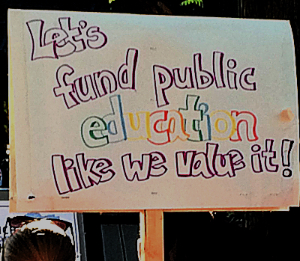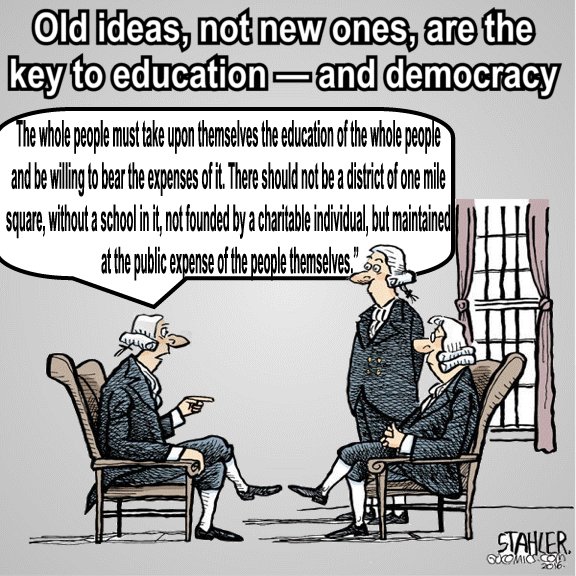It does not take a standardized assessment to know that for millions of America’s children, the burden of learning remotely, either full- or part-time, expands academic learning gaps between haves and have nots. Every instructional moment should be dedicated to teaching, not to teasing out test score gaps that we already know exist. Simply put, a test is a measure, not a remedy.
Upon his confirmation, Dr. Cardona should let parents and students know that federally mandated testing will be cancelled this year.
SPONSORED BY
To: Secretary of Education Nominee, Miguel Cardona
From: [Your Name]
Dear Dr. Cardona:
On December 14, 2019, President Joe Biden participated in the 2020 Public Education Forum held in Pittsburgh, Pennsylvania. Early childhood expert, Dr. Denisha Jones, explained the damage done by standardized testing and then asked, “If you are elected President, will you commit to the ending of standardized testing in public schools?”
Joe Biden's response was immediate, direct, and clear. “Yes.” He continued, passionately declaring that “teaching to a test underestimates and discounts the things that are most important for students to know.” As you listen to his full remarks regarding why he is opposed to standardized testing, you will hear the authentic response of someone who is not only married to a teacher but who, growing up with a disability, may have felt the brunt of standardized testing himself.
We, the undersigned understand that the pandemic has inflicted enormous social, emotional, physical, and academic harm on America’s children. We also know that the consequences of the pandemic have not fallen equally on some children’s shoulders. Those who were disadvantaged prior to Covid-19 are bearing a disproportionate weight from experiencing more loss, more hunger, and more stress than their more affluent peers.
It does not take a standardized assessment to know that for millions of America’s children, the burden of learning remotely, either full- or part-time, expands academic learning gaps between haves and have nots. Whenever children are able to return fully to their classrooms, every instructional moment should be dedicated to teaching, not to teasing out test score gaps that we already know exist. If the tests are given this spring, the scores will not be released until the fall of 2021 when students have different teachers and may even be enrolled in a different school. Scores will have little to no diagnostic value when they finally arrive. Simply put, a test is a measure, not a remedy.
To believe that it is impossible for teachers to identify and address learning gaps without a standardized test is to have a breathtaking lack of faith in our nation’s teachers. The President made it clear in his remarks that he believes in the ability of teachers to identify what students do and do not know; we hope that you do, too.
Like the President, some of us who sign this letter reject the need for the standardized testing regimes that exploded over the past quarter-century. Others conclude that such testing has a limited role. However, we all maintain that at this moment in time, it is in the best interest of children that the U.S. Department of Education lift the mandate for annual testing this spring.
We hope that you agree with the sentiments of President Biden and with us, and upon your confirmation immediately cancel the 2021 testing mandate.
Respectfully submitted by those who signed below.
During the campaign, Joe Biden promised to stop standardized testing. He acknowledged the damage it does to children and education.
Please sign the petition to remind him of his promise.



























 “With distrust came suspicion and with suspicion came fear, and with fear came hate–and these, in already distorted minds, inflamed a hell.”
“With distrust came suspicion and with suspicion came fear, and with fear came hate–and these, in already distorted minds, inflamed a hell.”

